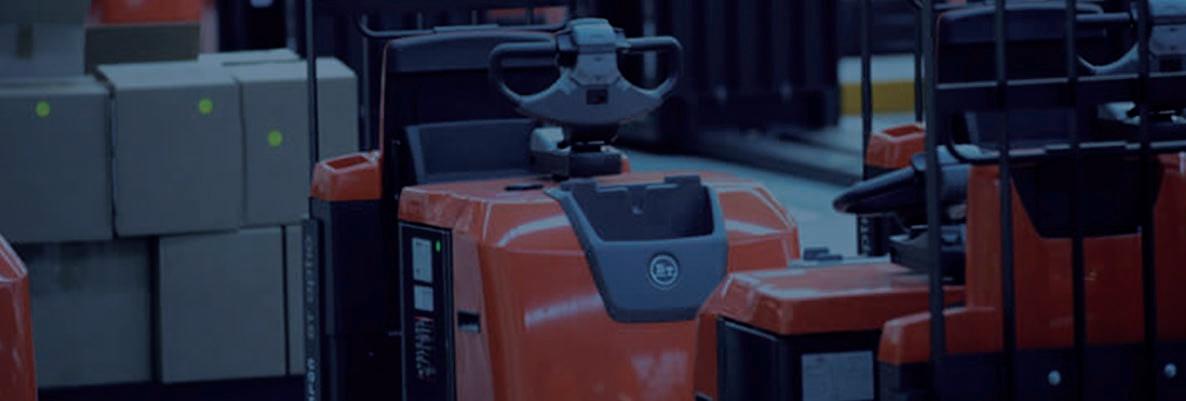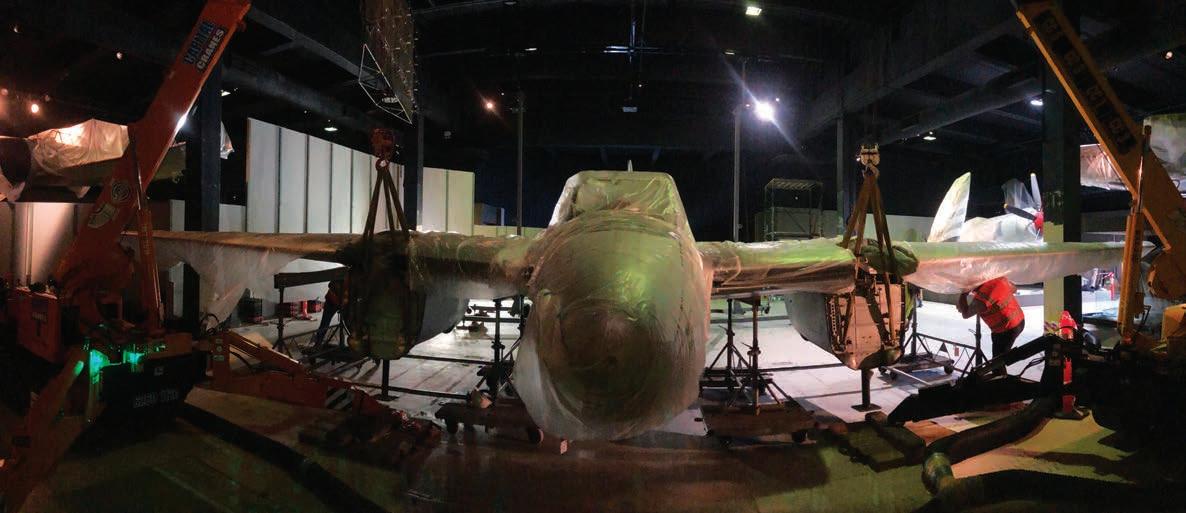
6 minute read
New appointment to the CICA board With a strong background in construction and a focus on safety, David Solomon was recently appointed to the CICA board
WORKING TOWARDS A SAFER INDUSTRY
David Solomon was recently appointed to the board of The Crane Industry Council of Australia.
WITH A CONSTRUCTION INDUSTRY CAREER
spanning 30 plus years, including numerous mid to senior management roles, safety in construction remains a major focus for Solomon.
Solomon is the executive officer, Safety and Risk at the Master Builders Association (MBA) in New South Wales and his appointment to the CICA board provides numerous synergies between the two organisations.
“I’ve always been aligned with safety
and I have managed to steer my career towards ‘pure safety’ in construction. I’m now with the MBA NSW where I head up the safety department,” said Solomon.
“With this broad experience in the construction industry, I sit as an industry representative on numerous industry forums. Last year, I was approached by CICA to become a director. My appointment will give the board a broader outlook in terms of safety, and I will be able to provide insights and advice regarding the broader topic of safety in construction,” he said.
Solomon’s experience in safety is extensive. He is an International Safety Quality Environment Management Association Safety Award winner in 2015 and 2106 for his commitment and involvement in developing a positive safety culture in the Building and Construction Industry. He is the Head of the Standards Australia International Delegation for the development of ISO45001, the first international standard for safety management systems. In his role at the MBA, Solomon has also designed, developed and published a suite of safety, quality, environmental and integrated management systems to comply with ISO, Australian Standards, NSW Government Guideline requirements and the WHS 2017 Act and Regulation.
“Safety has been the focus throughout my career, and I’ve been working to prevent workers from injuring themselves on construction sites the whole time. I’m pleased to say, I’ve had a clean slate to date.
“If I got hit by a bus tomorrow and the question was asked, “did David Solomon make a difference to the world of safety?”, I think the answer would be “yes he did”. I have helped produce an international standard to safety, in a plain English manner which can be applied to the Australian landscape. I am forever reviewing government documents to bring them back to grass roots and in my opinion, there is no point in having this safety information if it’s not able to be practically applied, let alone understood,” said Solomon.
In an industry where timelines are critical with unrealistic construction programs, construction workers will cut
corners to save time and this frequently includes compromising site safety, says Solomon.
“If you are going to have an unrealistic time frame which forces everyone to work out of sequence, the only way you can do work safely is to plan. While the construction program might be short, you need to be more organised at the front end of the project and the planning needs to be in place.
“The more you plan the less likelihood there is of an incident occurring, because you have sat and discussed it. If you have someone within a construction company agreeing to unrealistic time frames to appease a client, that’s the point where you have to sit down with key staff members and start planning. If you are not resourced adequately you won’t have time to plan, planning is the key,” said Solomon.
Solomon sees some definite synergies with his roles across the general construction sector and now in the crane industry.
“Wearing a number of hats is not new to me. The role with CICA is about increasing awareness and opening the lines of communication and the MBA sees my appointment to the board as a positive initiative.
‘‘It is broadening the reach of both industry groups and it also draws the two entities closer together. Being on the inside of both the MBA and CICA will make the lines of communication more open and it will bring the two organisations closer together. It also builds a level of trust between the CEO and the Executive Director of the two entities I represent. I’m pleased to report that the dialogue has been positive to date,” he said.
According to Solomon, there are a number of issues common to both MBA and CICA members. The most prevalent would be the unrealistic time frames expected for crane companies to transport, mobilise and to set up cranes on site.
“The movement of cranes restricted by government agencies is a big issue and streamlining the permit application ‘‘It is broadening the reach of both industry groups and it also draws the two entities closer together. Being on the inside of both the MBA and CICA will make the lines of communication more open and it will bring the two organisations closer together.”
process is very important. Site access is another issue and crane companies need to fully assess sites before they determine which type of crane is applicable. More broadly, the dialogue between constructors, owners of cranes and government agencies needs to be more organised, more open and more frequent,” said Solomon.
“There is a push to do this and Safe Work New South Wales is setting up a separate committee to assess the challenges involved in working in Sydney’s CBD. I think this is a marvellous initiative because it gets all interested stakeholders in the one room to share information.
“We are already seeing this happening with three major builders catching up once or twice a week. In years gone past, constructors kept information to themselves providing a leading edge over other builders. Now, the guard is coming down and builders are talking to each other more openly and they are even sharing road closure permits, which is unprecedented,” he said.
Solomon believes the Australian construction sector is a long way behind the northern hemisphere when it comes to offsite manufacturing of prefabricated sections for a project.
“If they can build two hospitals in Wuhan in ten days, we need to get serious about the efficiencies in terms of construction methodology in Australia. Currently we are miles behin d other sectors around the world.
“Today, we are still lifting skip bins full of rubbish, reo or form work, when we need to be lifting completed sections of services like pods of bathrooms, sections of central flooring, walls and components which can be joined up, which limits our crane efficiency greatly.
“It is inherently safer to build components off site and in a controlled environment and when these components get to site, it makes a crane much more efficient. As soon as this practice becomes more prevalent in the construction sector the pressure on constructors and crane companies will be eased,” said Solomon.
Post COVID-19, Solomon believes the construction sector is well positioned to cope with the shovel ready projects and the fast tracking of infrastructure projects.
“I think the construction sector has been very fortunate to be categorised as an essential Industry. On the larger scale projects, we haven’t really seen a lot of disruption apart from the application of the COVID-19 controls like the foursquare meter rule, the limits on travel and 1.5 meter social distancing.
“The construction industry has been very quick to adapt, and the right measures have been put in place to comply with the regulations. The single dwellings residential area of the sector has taken a hit with the level of orders reduced and this will have a knock on effect throughout the industry.
“But, once the restrictions are lifted, we could well find a bottle neck develops and there will be a substantial amount of work that needs finishing. There are other issues including a shortage of materials procured from overseas, but we are a resilient industry and we’re finding ways to keep going. In 12 months, I forecast we will be back to where we were before COVID-19. It will take that time to recover but I think the industry will come out of this better, stronger and wiser for it,” said Solomon.










